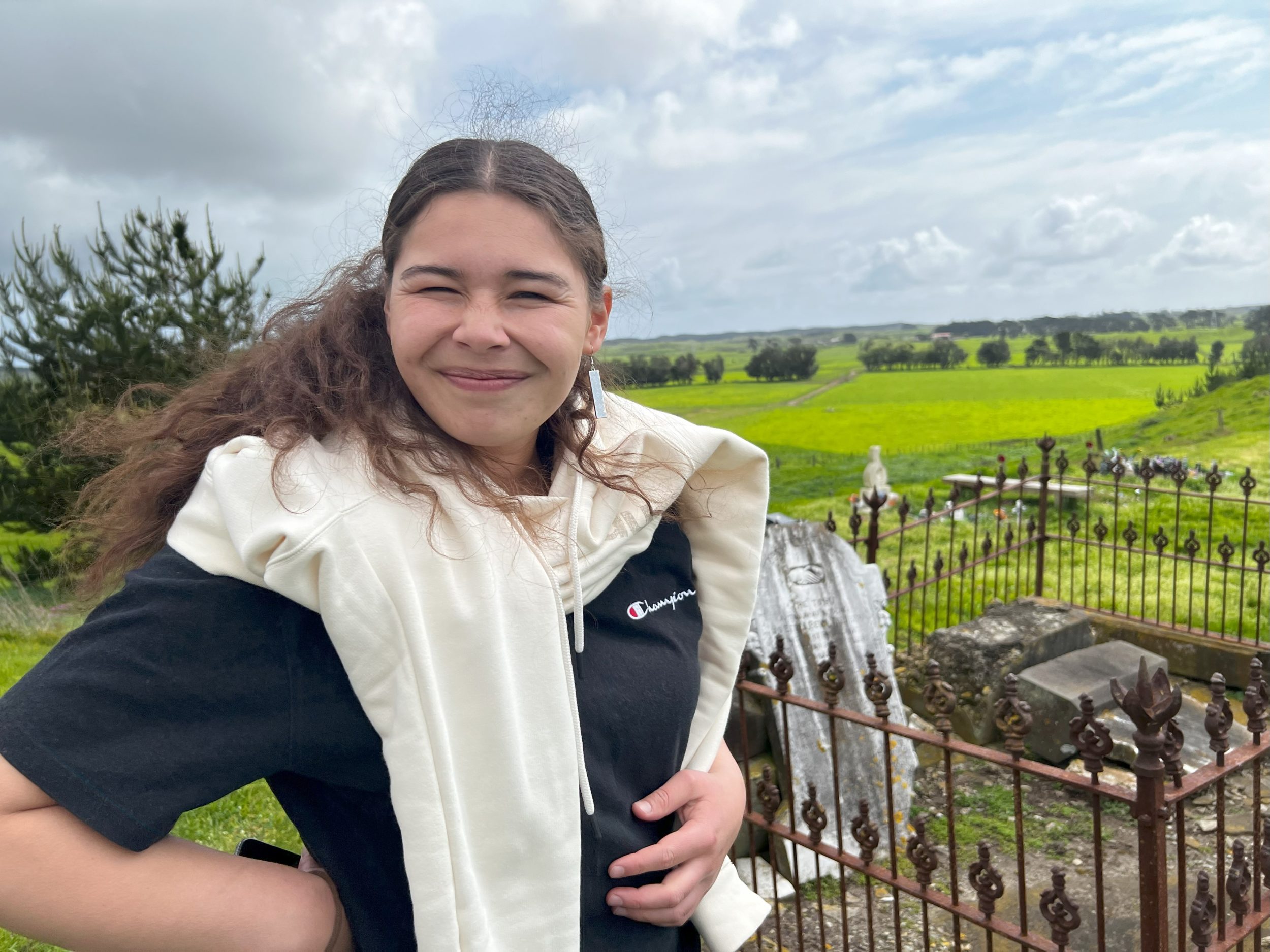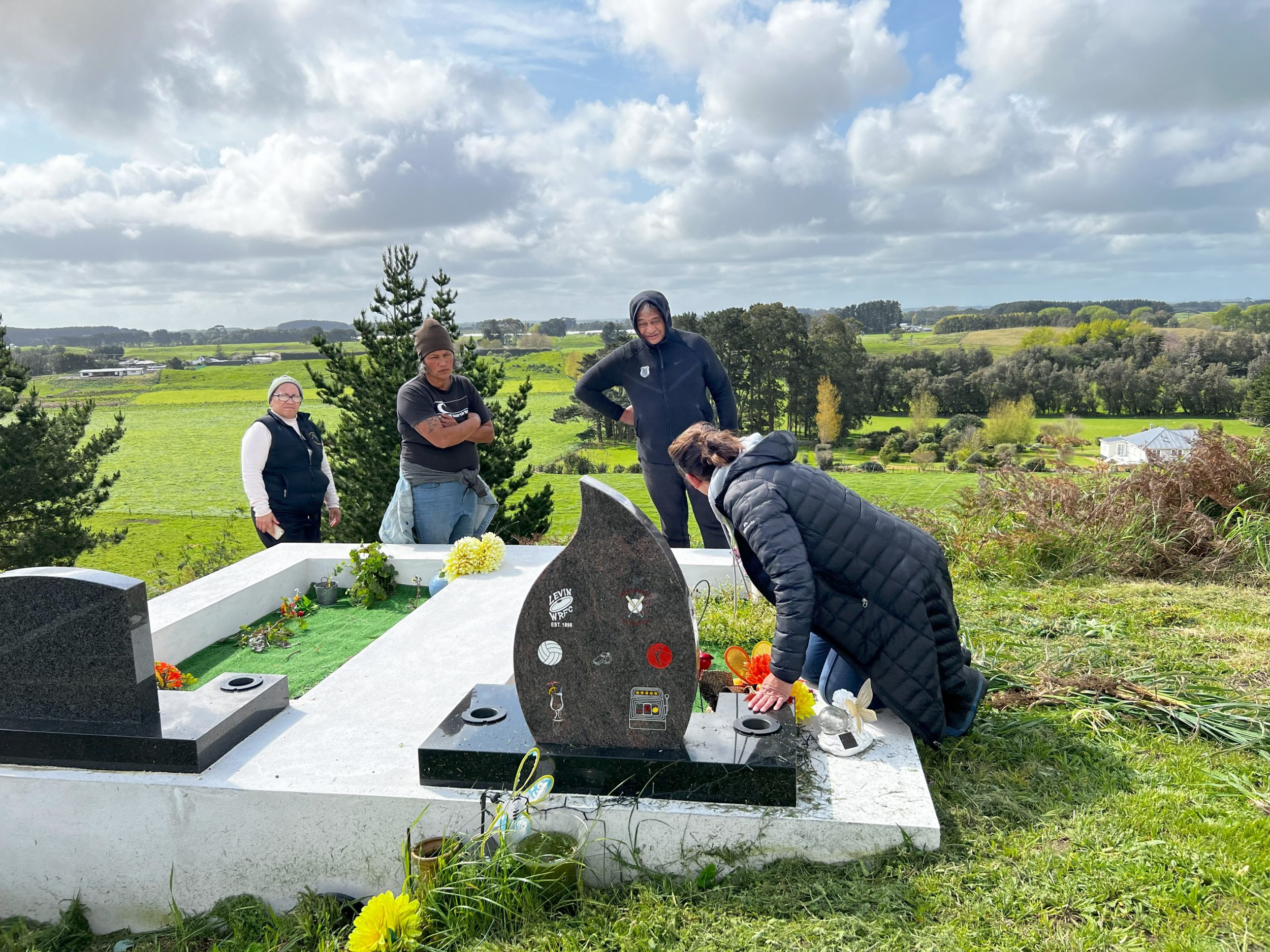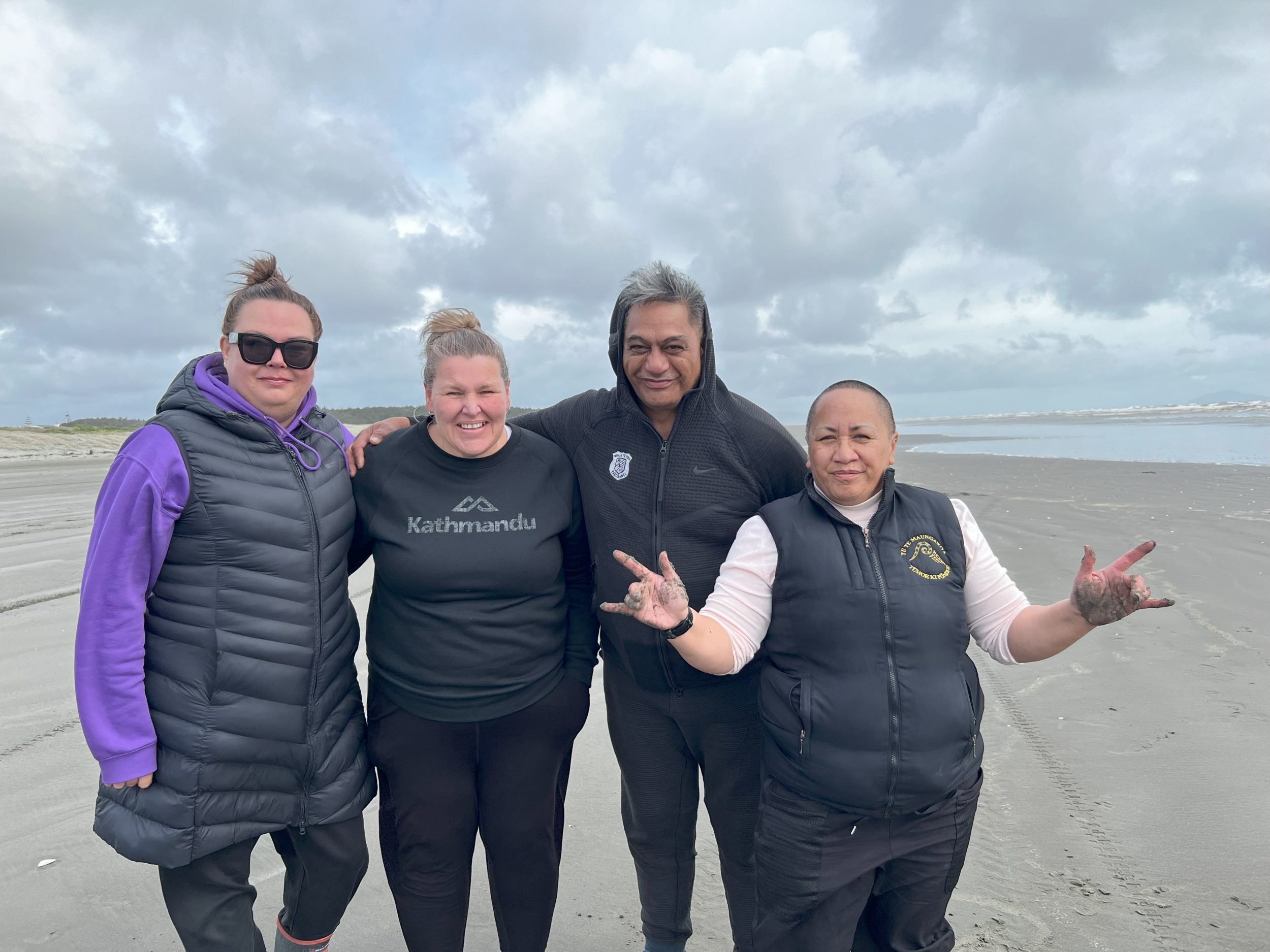‘E oi koe i a koe anō – Know yourself.’
A group of tāne and wāhine gathered at Matau Marae in the Horowhenua countryside recently to deepen their knowledge and experience of te ao Māori systems, beliefs, and values so that they could better support whānau that they work with.
They were there for the third in a series of five weekend-long Mauri Ora wānanga facilitated by the long-established indigenous education and training organisation, Te Korowai Aroha o Aotearoa.
“We offer people attending these wānanga professional and self-development so that they can become more effective within their mahi when engaging with whānau.”
Tamaku Paul, Te Korowai o Aotearoa Kaiwhakaruruhau
She says the wānanga challenge people to consider who they truly are, why they have the traits they do, and how their personal and social histories impact them so that they are best equipped to communicate well with whānau that they work with.
This allows wānanga participants to anchor themselves in models of practice that reflect te ao Māori.
“It all starts with knowing and understanding yourself.”
Tamaku Paul
E Tū Whānau has been working with Te Korowai Aroha o Aotearoa over many years to support capability development in our community partners, focused on their mahi to strengthen and uplift whānau and communities.
‘Seeing te ao Māori as it truly is’
Most of the tāne and wāhine attending the weekend wānanga at Matau Marae were working, or had worked, with rūnanga Māori providers, in government agencies, NGO’s, or with community groups engaged with whānau.
Despite their experience, they came away exhausted by the challenging kōrero and exploration of the depth of whanaungatanga.
But they were exhilarated as well.
One wāhine described the experience as, “wiping the scales from my eyes and seeing te ao Māori as it truly is”.
The wellbeing and resilience of Māori for generations to come, they were told, starts with them and their own whānau.
They were reminded that a strong, connected whānau with tangible links to the whenua of their tūpuna and those keeping the home fires burning is the basis of a strong hapū.
“When strong whānau come together they become a connected hapū and those hapū come together to build strong iwi.”
Tamaku Paul
Laying the foundations for future generations
Kōrero at Te Korowai Aroha o Aotearoa wānanga was of kotahitanga, aroha, patience, and acknowledging trauma but moving forward with forgiveness.
Participants also discussed how to build whānau capacity in tikanga, mātauranga, and te reo Māori by breaking everything down to achievable and engaging strategies. One example was using games and storytelling to help tamariki and rangatahi learn who their tūpuna really were, and why the values and structures they lived within were protective of whānau, hapū and, ultimately, iwi.
They talked of their own responsibility to live and demonstrate those values and to take their whānau back to their marae, not just for tangi but whenever possible to help maintain it and build strong, intergenerational relationships.
Raukawa drug and alcohol counsellor, Karen Taui, has decades of experience working to prevent family harm, including a 20-year stint with Women’s Refuge.
“A large part of the dysfunction and family harm I’ve seen throughout my mahi is because wāhine and tāne Māori feel lost to themselves. They have lost the real relationship to their whānau, their hapū, and their iwi.
These Mauri Ora wānanga challenge us to prioritise those relationships in our own lives, to be proactive and make those links strong and meaningful.
Taking this hīkoi together rather than as individuals, just Māori being Māori in this space, has been so liberating, uplifting, and enlightening.
We will all take the insights we’ve gained back to the people we work with and remind them that they have all this within them too.”
Karen Taui
Te Korowai Aroha o Aotearoa was established in 1988 to address a need for Māori counsellors. In 2002, a tikanga-based conceptual framework was developed. It drew from the extensive and successful experiences of iwi practitioners to support Māori counsellors and social workers working with whānau. Over the last 30 years, it has shaped wānanga that build self-directed responses and preventative approaches designed to empower and liberate whānau to positively engage and contribute to their own whānau, hapū, and iwi.



